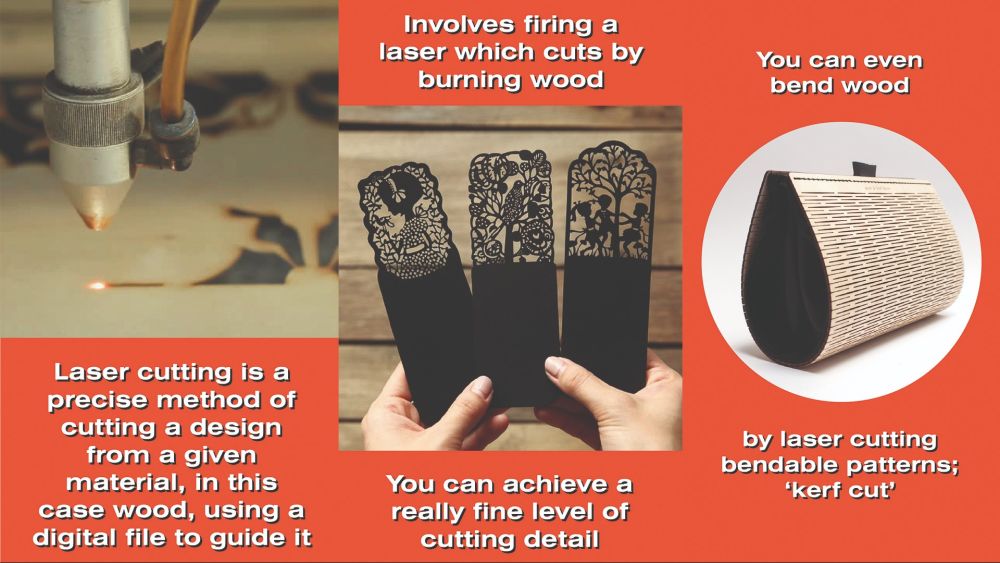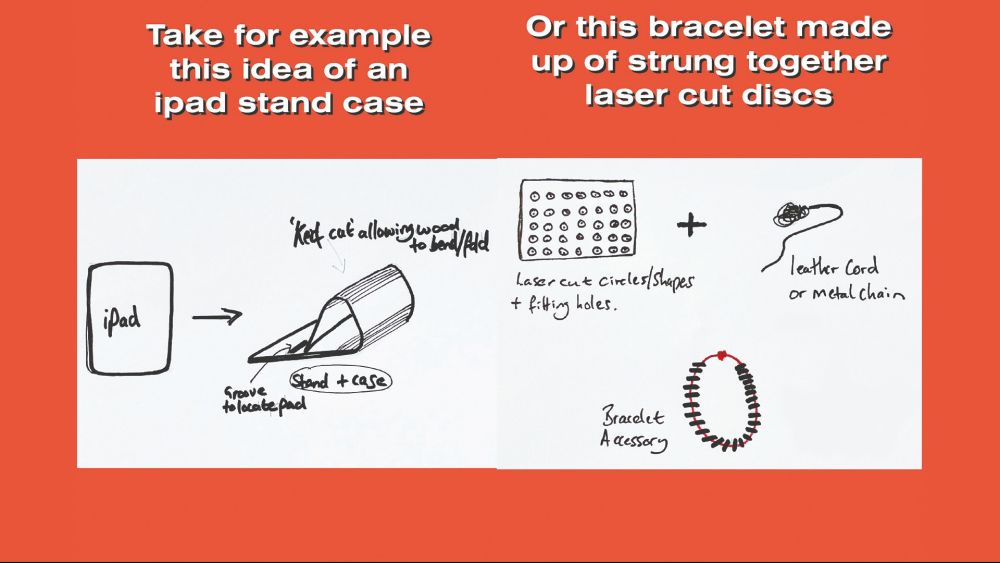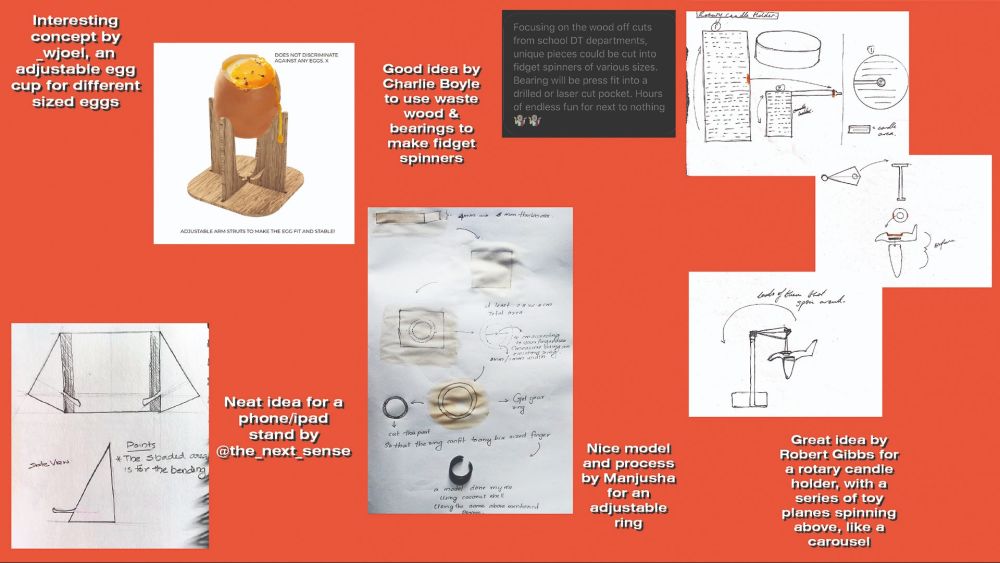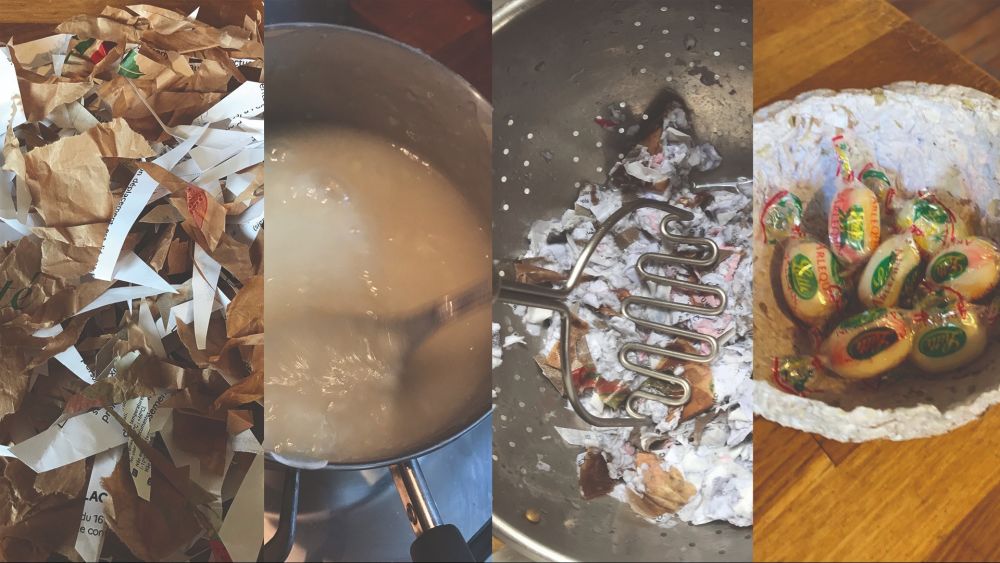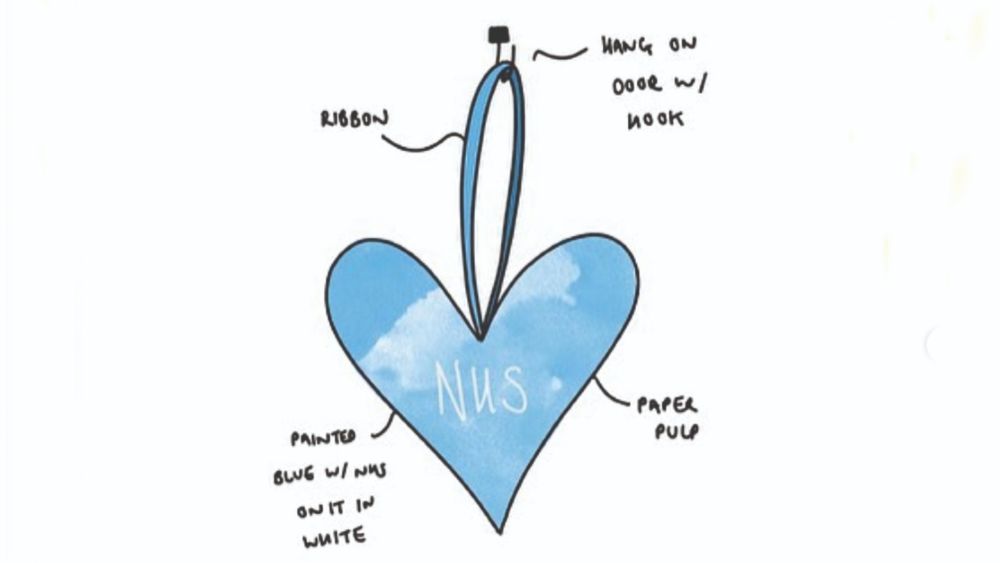Co-design for community enterprise
Working with local partners and the Public Collaboration Lab (PCL), our BA Product Design students inspired young people in Somers Town to design and develop eco-friendly product ideas that could be created and sold locally, with revenues returning to Somers Town Youth Centre and the young people involved in the project.
The Project
The project kicked off with a briefing session held at MAKE@StoryGarden led by Youth Leaders Jamie King and Shazna Ahmed where the students and young people had a chance to meet and mix over pizzas and table tennis.
To understand their target market and potential customers the students met with Labtech, the team behind Buck Street Market, and also consulted Camden Council’s waste team to understand the types of materials that would be available for reuse locally.
They began creating a set of co-design tools which incorporated:
- recycled materials available locally
- manufacture processes available through the maker space
- customer lifestyles/profiles and possible product preferences
- existing product offers selling well to customers on other markets
and which responded directly to:
- the youth cohort – quick, fun and engaging, sharing knowledge of materials, manufacture processes and design process
- the youth centre context – a busy, lively and informal atmosphere.
The tools they came up with combined these insights (drawing on Arthur Koestler's Bisociation method) to generate random combinations of material, process and context - by rolling dice, picking cards or dropping and catching sticks using content resulting from their research findings e.g. waste glass bottles + kiln + domestic use.
Continuing work during a global pandemic
On the afternoon of Monday 16th March, as the students were setting off for their first project meeting, they received a call telling them that the youth centre was closing that evening due to the COVID-19 crisis. This meant that there would be no opportunity to deliver the co-design activities face-to-face. Acting quickly, the students brainstormed with PCL and decided to deliver the project remotely via the youth centre’s social media network.
The students sketched out ways their co-design tools could be adapted for remote engagement and decided that the 'cards' tool was best suited to digital delivery. As well as ensuring consistent communication between the students and youth leaders the PCL team introduced the students to the Miro collaboration platform and guided them as they developed the process and mapped out the user journey. The students initially split into two groups working in parallel so that all could contribute and benefit from the learning experience. Both groups then came together to combine their work into one delivery model.
Instagram was chosen as the most suitable platform as it enabled them to incorporate graphics, animation and video and the youth leaders were able to re-post content to followers of the youth centre’s Instagram page. To increase engagement and generate more interest they decided on a competition format with £10 Amazon vouchers awarded as prizes to those who posted responses on Instagram and were shortlisted.
Following a pilot with a focus group over a weekend the platform launched to a wider audience on Tuesday 31st March. There followed 10 days where each 24 hours was dedicated to a specific challenge set by a different student to crowdsource responses from the youth centre and wider public.
After the ‘challenge’ phase of the project the student designers selected three crowdsourced concepts each (24 in total). These 24 designs were then shared on the project Instagram with followers invited to ‘like’ the designs they think have most potential. Having received follower feedback the designers finalised one design each – detailing the product and providing instructions on how to make it. These products and their instructions are now available online as open source designs for local manufacture.
This agile and socially responsive design approach delivers social value during the crisis whilst maintaining the core objective of the project – working with the Somers Town youth centre and youth in the co-creation of the product concepts that they will make and sell to raise funds for the youth centre (when the Covid Crisis is over and the youth regain access to the youth centre and the maker space).
Follow the project at @Trashcanldn
